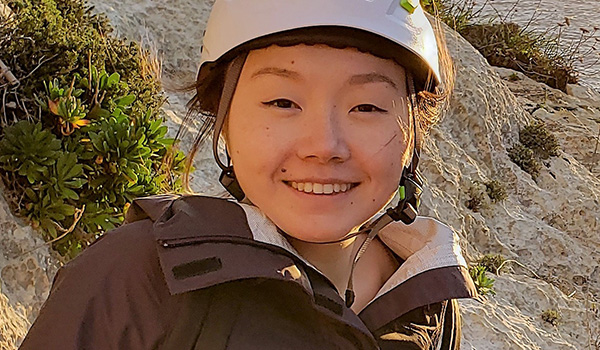Graduate Student
Level: Graduate

How did you become interested in engineering and of UW A&A in particular? Tell us more about your pathways leading you here.
My high school's physics teacher convinced me to become an engineer (Hi, Mr. Ferreira)! I was thinking about majoring in math, but Mr. Ferreira recommended that I do an engineering degree instead. In retrospect, I'm glad because a pure math degree would have been too theoretical and I wouldn't have enjoyed it.
During my engineering undergrad, I became interested in robotics and came across control theory. Control was appealing due to its roots in math and its diverse applications in robotics, machine learning, etc. Math has always been dear to me, so I was excited to discover an engineering field that heavily used theoretical results to provide physical guarantees. During my grad school search, I was drawn to A&A's theoretically strong control faculty. Since Seattle is also an awesome city to live in, the UW was a done deal for me.
Tell us about your interesting internships and research lab experience.
In my undergrad, I interned with MDA, the company that developed Canadarm. While there, I worked on the satellite scheduling code base for the RADARSAT Constellation Mission. The experience gave me an inside look at how these missions are developed and conducted. But it left me wanting more, because implementing objectives that someone else decided was not intellectually stimulating at all.
I also did research with the CARIS lab at the University of British Columbia. There I developed an augmented reality trajectory planning program for industrial robotics. I really enjoyed this research experience because a) I got to play around with cool gadgets like the Hololens all day, b) no one told me what to do, and c) the research problems in robotics are endless.
What do you enjoy most about A&A?
Its size! A&A is such a small department that you'll get to know everybody, from faculty to the administrative team to all the students. I can usually spot my advisor wandering in the hallway and chat with undergrad students I've TA'ed working in Guggenheim. I feel very lucky to be surrounded by all these wonderful, intelligent people.
What advice do you have for prospective students?
Don't be afraid! Looking back, my main regrets are when I didn't go for something because I was afraid. Once in a while, I remind myself of this fact, so maybe it will be helpful to others: Getting a Ph.D. is a choose-your-own-adventure game in learning. Sometimes the learning gets a little aimless, or a little (a lot) challenging, or it just drags on, but it wouldn't be an adventure otherwise.